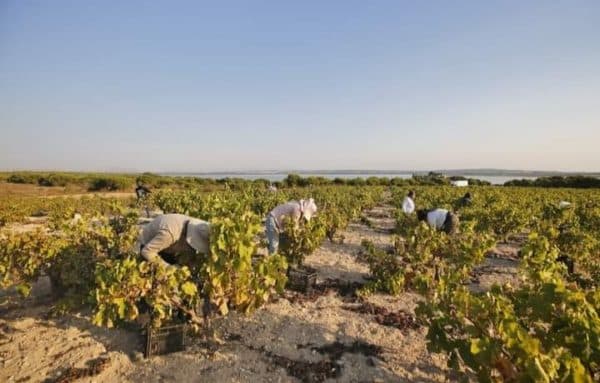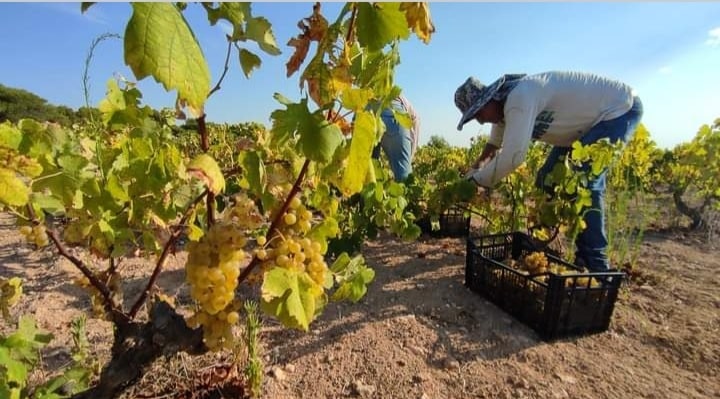- Quote: ‘A round of applause for the vintage of my people, what good wine there is in La Mata’
The harvest of grapes in La Mata, one of the earliest in all of Europe, began in mid-August, has brought back memories of yesteryear.
This year, grape production has been reduced, among other crops, by the persistence of the easterly wind, the rains and the strong heat.
“Since I was a child I have always seen this vintage and look how the years go by.
“I never get tired of seeing it, thanks for the beautiful and special photos,” said Conchi Macia Molero, from Torrevieja.
“Beautiful photos, good grapes from La Mata, the table grape and the wine from La Mata,” said Torrevieja based Maria Del Carmen Pérez Salas.

“They will taste great in a bottle of wine,” said Carol Haydon.
“A round of applause for the vintage of my people, what good wine there is in La Mata.
“Before when I was young they stepped on it with their feet, and pure wine came out of that broth, now with modern machines I don’t know anymore,” said Fina Sanchez Perellò, from Càceres.
Maria Jose Quesada from Alicante said: “How good is the La Mata grape. And the Muscatel, come on, sweeter than honey.”
Grapes could stave off dementia and extend your lifespans, a new study has reported.
Researchers have commented on the ‘astonishing’ effects of the common fruit on health and life expectancy.
Adding grapes to a high-fat diet reduced the risk of non-alcoholic fatty liver disease (NAFLD) and increased levels of antioxidant genes, reported the study recently published in the journal Food.
Previous research has found an association between NAFLD and increased dementia risks.
Scientists said the benefits would correspond to an additional four to five years of life in humans.

John M. Pezzuto, who has authored over 600 scientific studies, called the findings ‘truly remarkable’: “We have all heard the saying ‘you are what you eat’ which is obviously true since we all start out as a fetus and end up being an adult by eating food.
“But these studies add an entirely new dimension to that old saying. Not only is food converted to our body parts, but as shown by our work with dietary grapes, it actually changes our genetic expression. That is truly remarkable.
“But if you change the level of antioxidant gene expression, as we observed with grapes added to the diet, the result is a catalytic response that can make a real difference,” he said.
Caption: Harvest of grapes in La Mata, one of earliest in Europe. Photos: Joaquín and Rubén.





